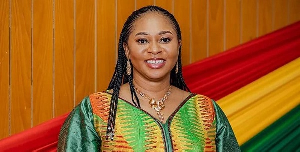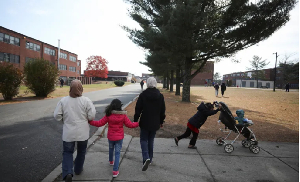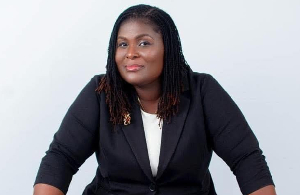This publication is put out as a culmination of the countless bitter experiences and subsequent expression of total disgust at such biased or discriminatory attitudes by the Ghanaian organisers of funerals in their foreign countries of abode.
Having self-styled, or self-elected, myself, as the voice for the voiceless, I could not hesitate to put out this publication to alert, or advise, my fellow Ghanaians about our attitude at funeral celebrations as organisers in the capacity of bereaved families.
When I attended the funeral of my late father-in-law, Philip Basoah (Hon.), the member of parliament for Kumawu constituency on Saturday, 29 April 2023, in London, in the company of my wife (his daughter), Mr Ankrah (my father) and Kwaku Osei (my sibling), almost all as per the Akan tradition, the following incident which has necessitated this write-up, happened.
No sooner had we walked into the funeral ground, shown to our seats, than we were offered drinks by the nominated female servers.
We went to meet a very beautiful woman already seated on the first chair on the horizontally-arranged row of chairs we were taken to. The woman from her body language and facial expression was not happy at all. She was very angry within.
The number of times that the drinks and sweets servers attended to us, the woman refused to accept anything offered to her.
After about an hour into our arrival and sitting beside her, she opened up to my wife who was sitting next to her. She said, “Ghanaian bereaved families in London here have a biased attitude towards people they don’t know when you attend their funerals.
They completely blank you as though you don’t exist. They don’t serve you anything. For all the duration that I have been here, nobody has made any attempt to serve me anything until you people came. I have been to a few funerals before coming here but they are all the same. This is a very bad attitude by our Ghanaian funeral organisers (bereaved families)”
My wife rendered immediately an apology to her and persuaded her to accept something but she refused. A few minutes later, she stood up and said she was leaving. However, she passed by the donation table to offer her sealed-envelope containing her donation before leaving.
From her conversation of regret at the Ghanaian deplorable attitude at funerals which may not be intentional on the part of the bereaved families, I have decided to alert all of us Ghanaians to what goes on on the blind side of bereaved families that are not appreciating to some invited or non-invited mourners that come to mourn and sympathise with us in times of our bereavement.
Back home in Ghana, things may be better and different than they prevail in abroad.
The woman’s observations are not peculiar to any one Ghanaian funeral but across the board. Therefore, an effective solution must be found to redress the issue before she decides not to attend any more funerals or events organised by Ghanaians.
She may not be the only person holding on to such a negative idea or impression about Ghanaians as far as the funeral celebrations for our departed loved ones are organised.
I will suggest as following. There should be nominated persons to monitor the arrival and seating of mourners and sympathisers as they come in, to quickly alert the drinks servers, or the appointed persons to approach people to ask about their mission to the venue in line with our funeral traditions. By this, many newly arrived mourners may not be forgotten but served drinks and titbits, if any. This will avoid the reoccurrences of the bitter experiences of the woman under discussion.
This advice goes to all Ghanaians for their future awareness when organising any function open to the public without a special invitation.
It is better that the woman opened up to give me a topic to write about in correction of a fault we are beset with but unaware of.
Anyone coming across this publication should please forward it to their friends until it reaches all Ghanaians abroad in their nooks and crannies to help us correct the mistake raised.
It is good that the woman expressed her bitterness. It is also good that I overheard the conversation and could witness her facial expression prior to her opening up or else, I would have had to silently battle with myself to figure out why such a very beautiful woman was very sorrowful and refusing any drinks offered to her.
When speaking for the voiceless or defenceless people in society, I am guided by Proverbs 31:8-9 which reads “Speak up for those who cannot speak for themselves, for the rights of all who are destitute. Speak up and judge fairly; defend the rights of the poor”.
Opinions of Monday, 1 May 2023
Columnist: Rockson Adofo















